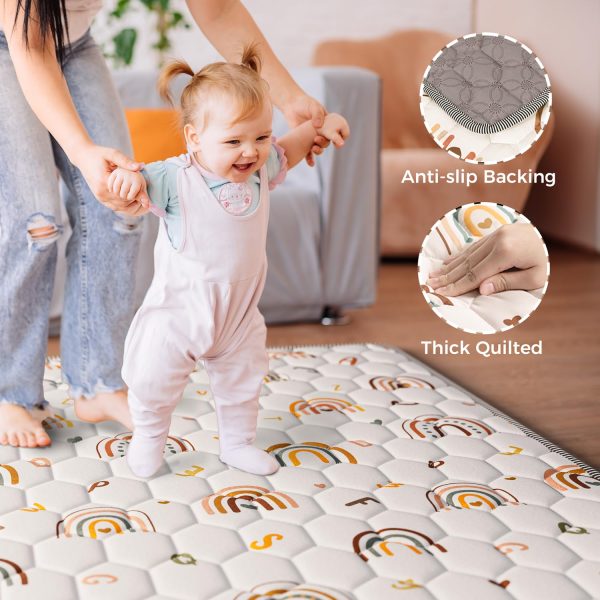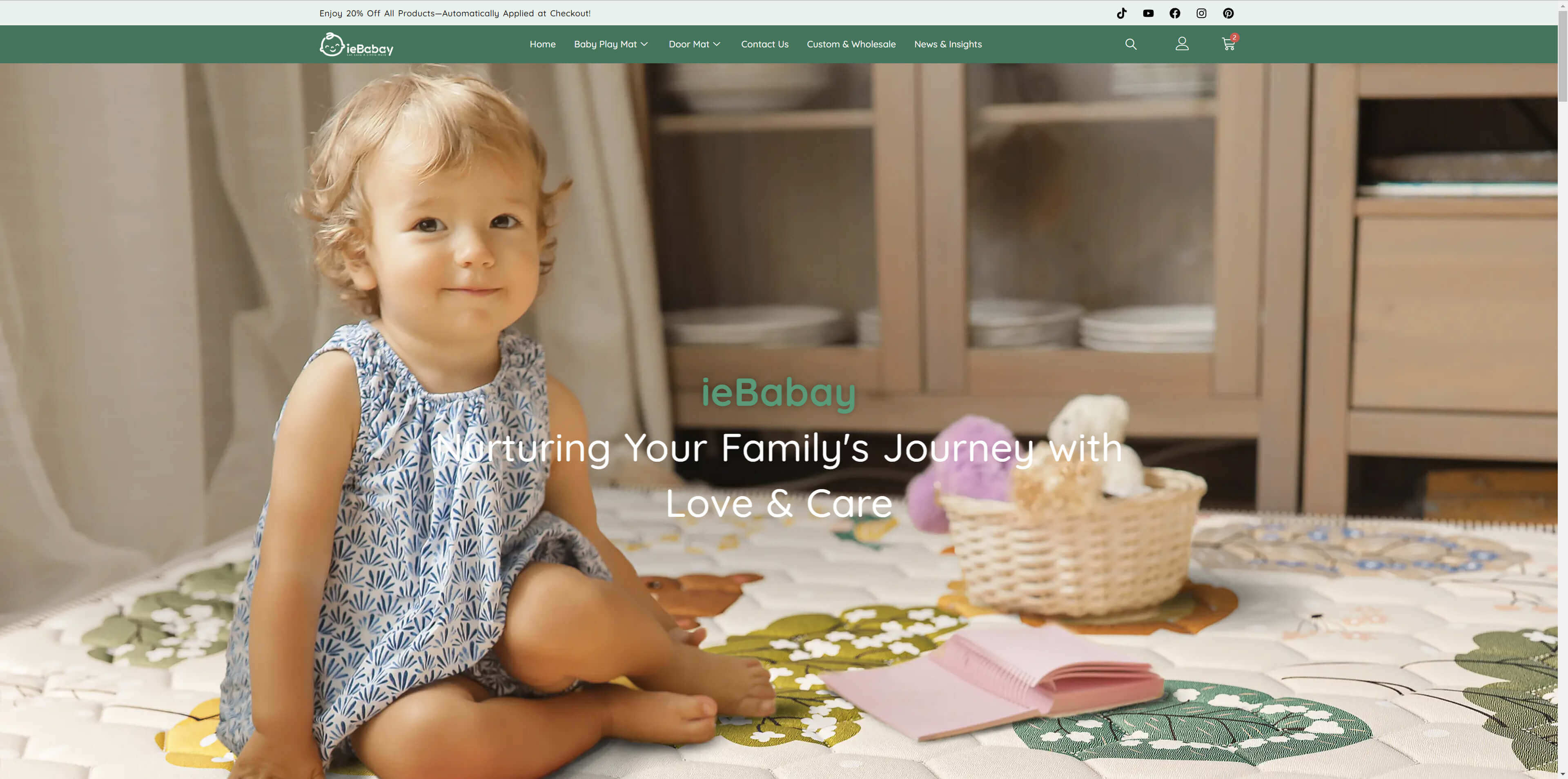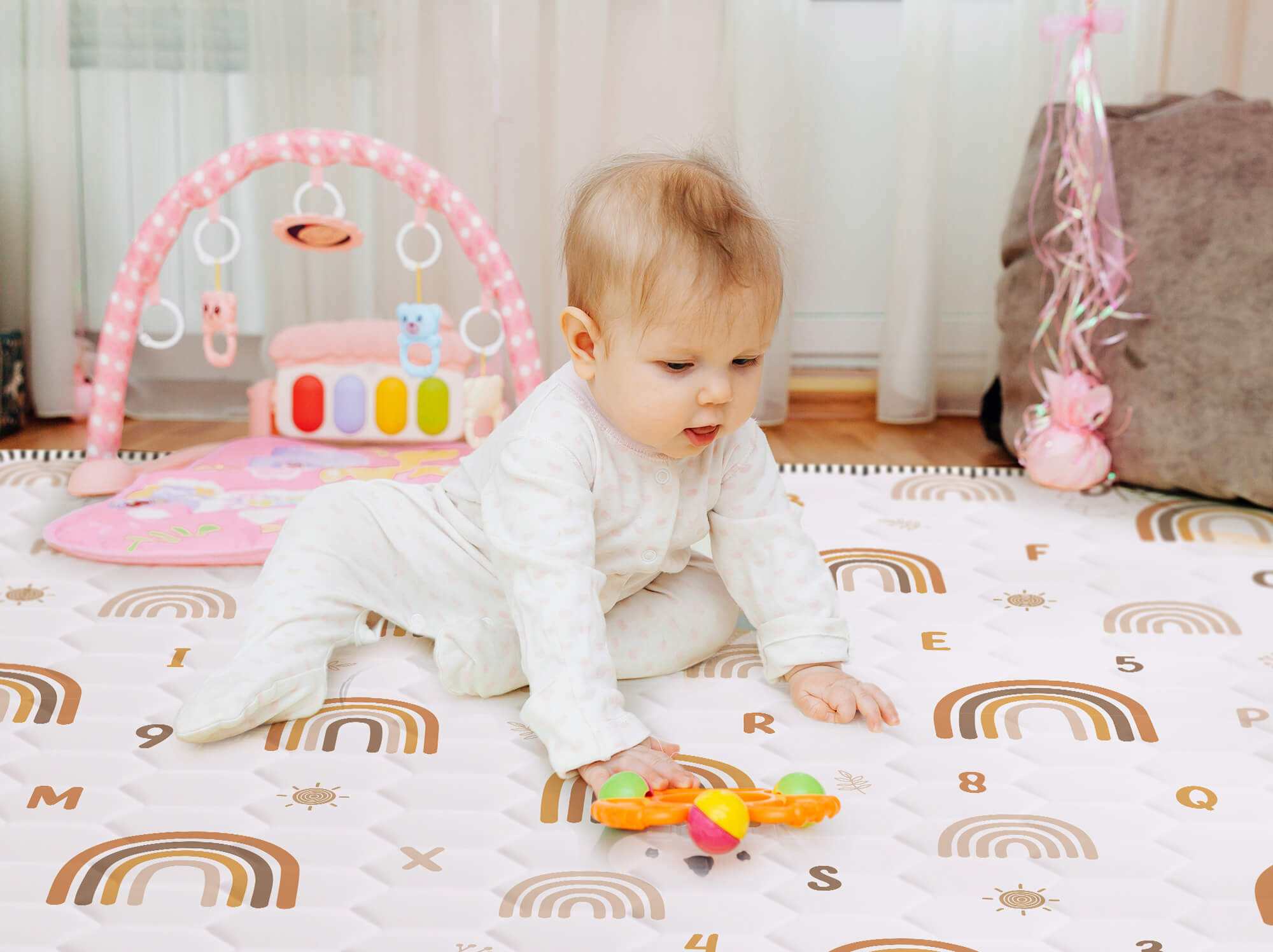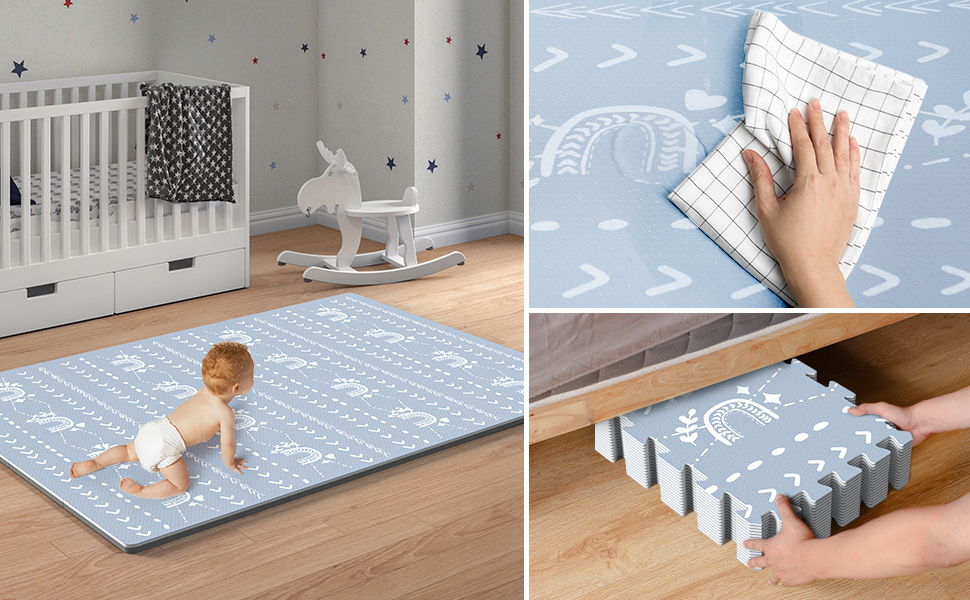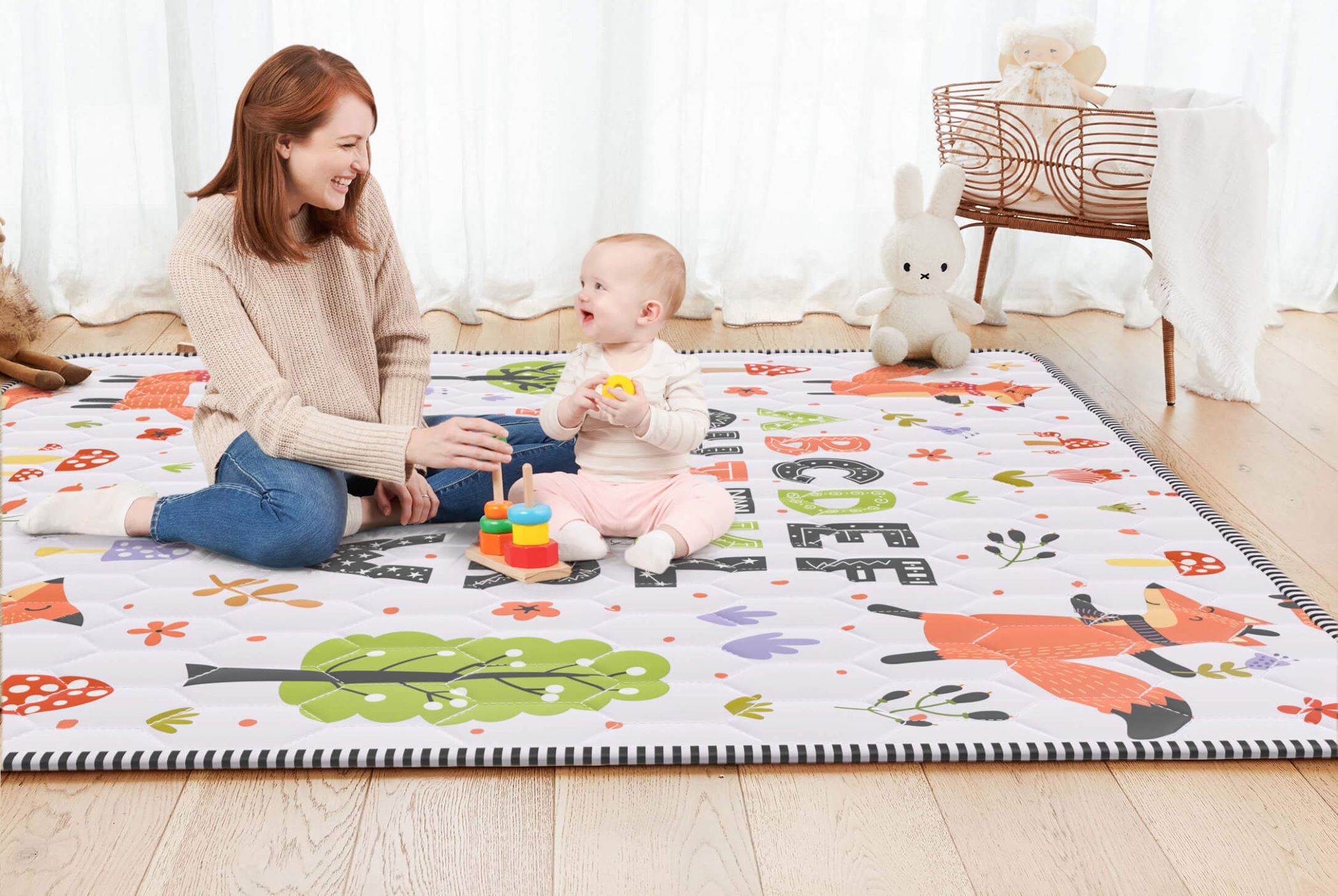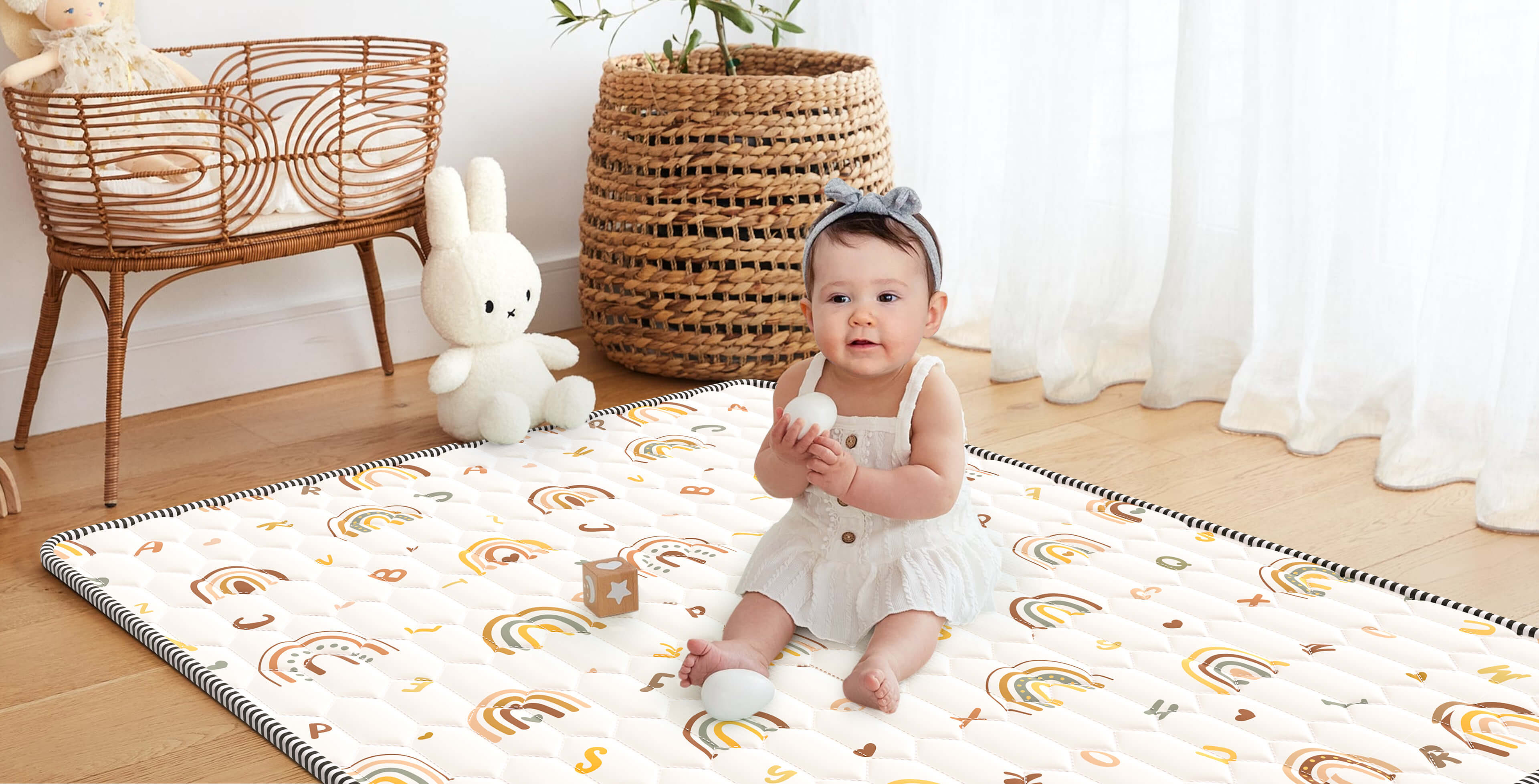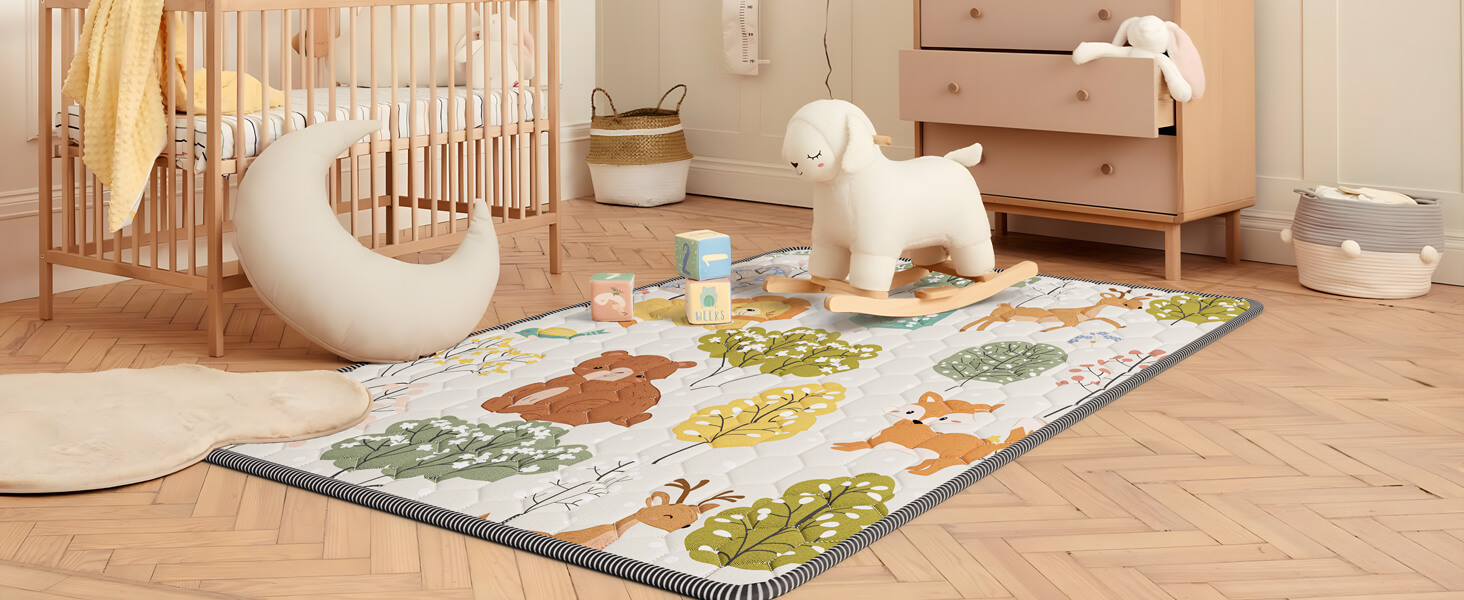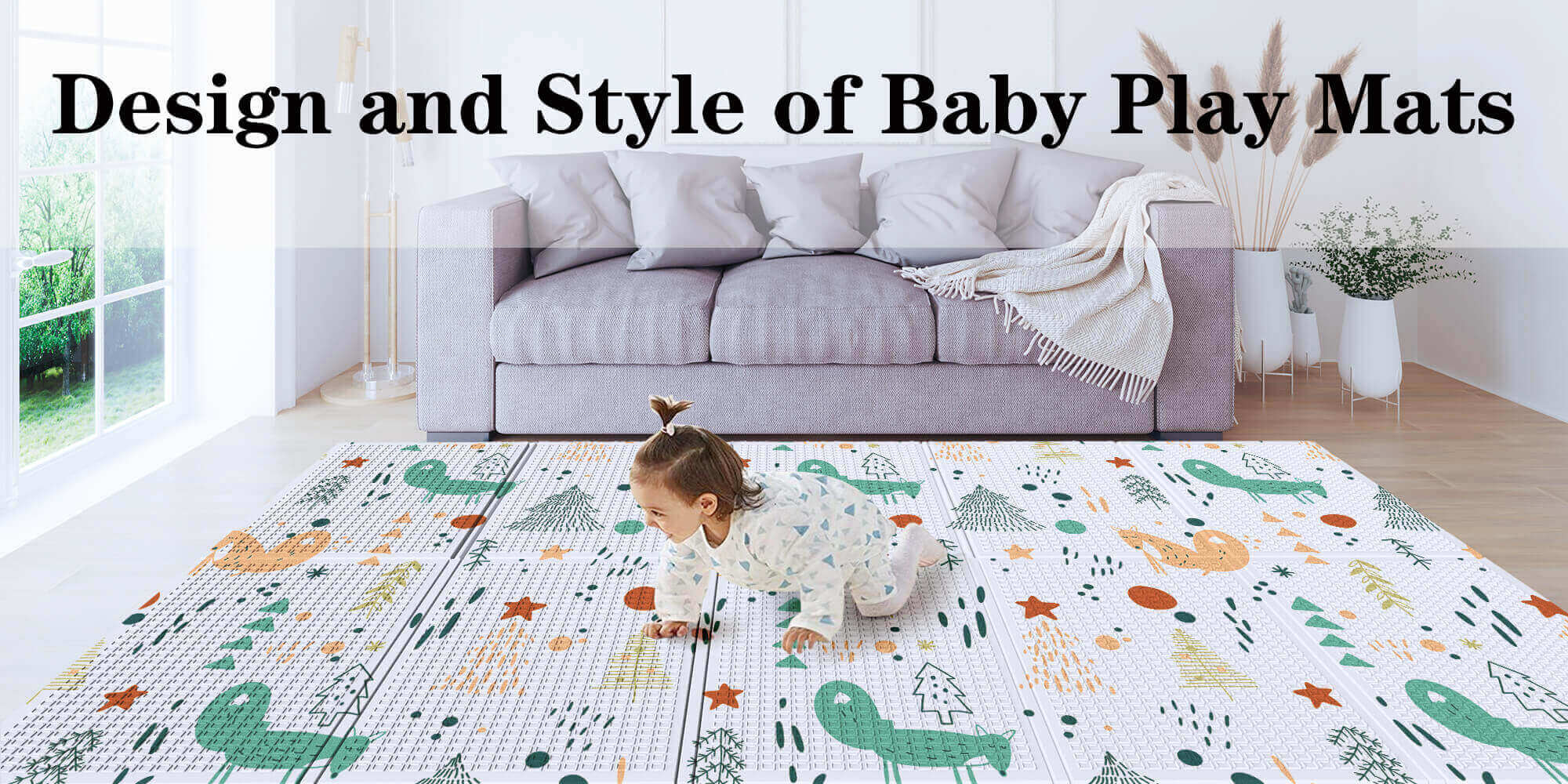
- Home
- Baby Play Mats
- The Practical Application of Play Mats in Parenting Life
The Practical Application of Play Mats in Parenting Life
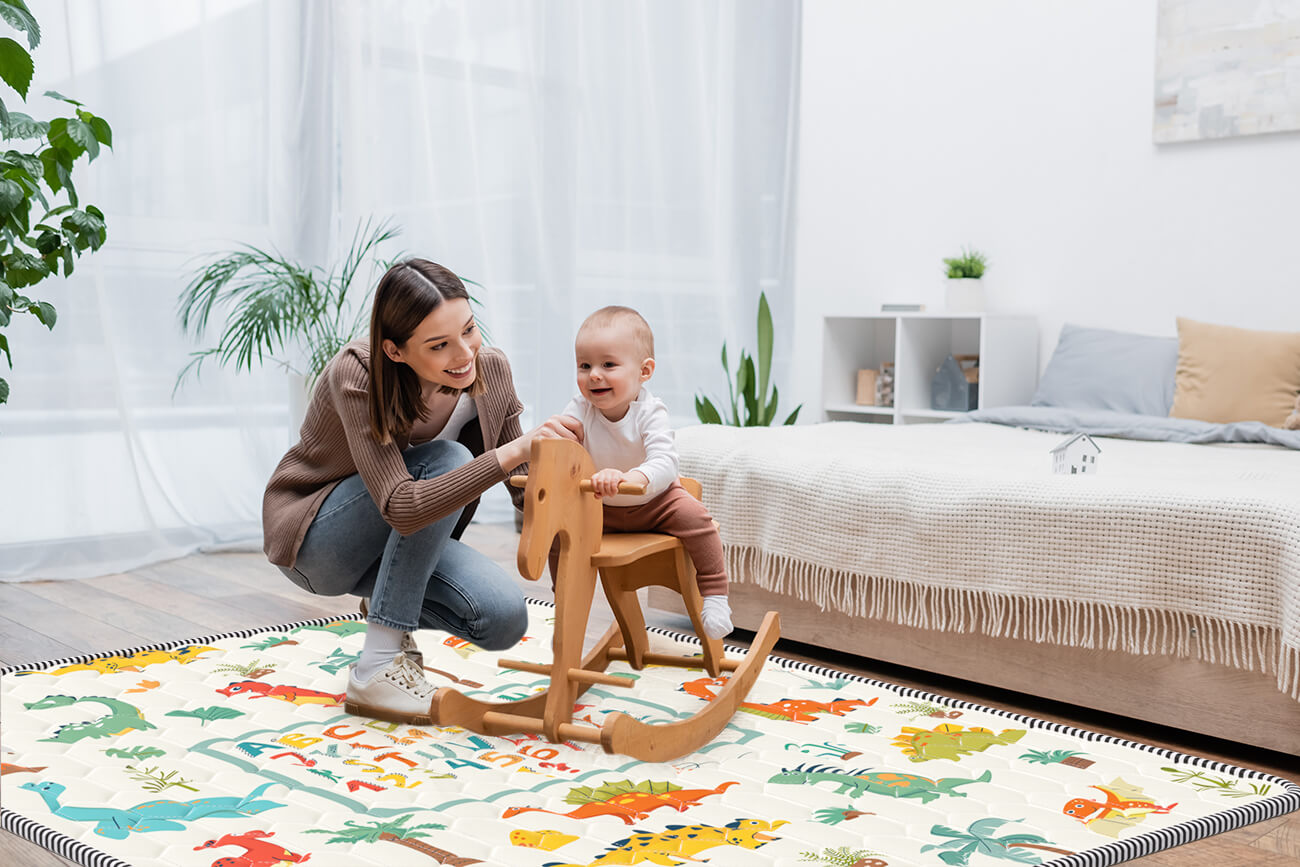
In today’s fast-paced world, parents are constantly searching for innovative ways to enhance their children’s developmental experiences while also ensuring safety and convenience. Play mats have emerged as a staple in modern parenting, offering both fun and educational value. From infancy to toddler years and beyond, play mats are essential tools in playtime, learning, and child safety. This comprehensive guide delves into the practical applications of play mats in everyday parenting life, highlighting their versatile benefits.
1. What Are Play Mats?
Play mats, also known as game mats or activity mats, are cushioned surfaces designed for children’s play areas. They can vary in size, thickness, and material, but their main purpose is to provide a comfortable, safe, and interactive space for children to play, explore, and learn. Play mats often feature colorful designs, patterns, and even interactive elements that stimulate a child’s senses and motor skills development.
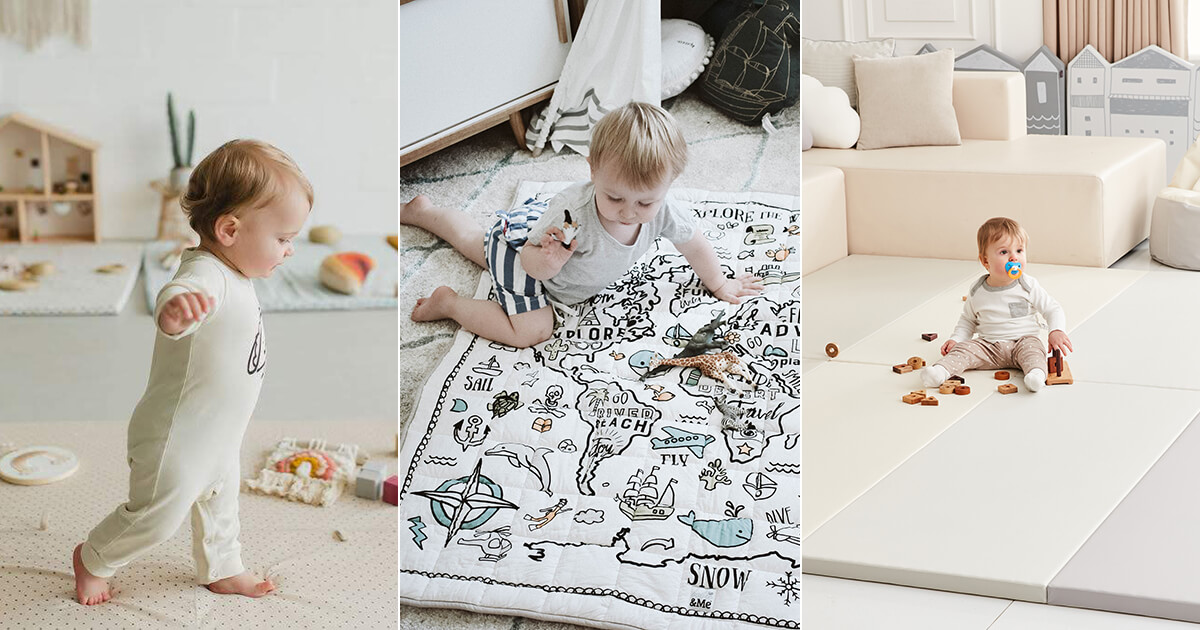
1.1. Types of Play Mats
Foam Puzzle Mats: These mats consist of interlocking foam pieces, often in bright colors or featuring letters, numbers, or animals. They are ideal for creating large play areas and can be rearranged to fit any space.
Soft Fabric Mats: Typically made of non-toxic, cushioned fabric, these mats are softer and are often portable, making them great for travel.
Interactive Play Mats: Some mats come with built-in features like lights, sounds, or activities that promote learning through play.
1.2. Materials Used in Play mats
Play mats are made from a variety of materials, each offering different levels of comfort, durability, and safety:
EVA Foam: Common in puzzle mats, EVA foam is lightweight, soft, and durable. It’s also water-resistant, making it easy to clean.
Polyester and Cotton: Used in fabric mats, these materials provide a softer feel, perfect for younger children.
PVC-Free Plastics: Increasingly, parents are opting for eco-friendly, non-toxic mats made from PVC-free plastics that are safe for infants and toddlers.
2. The Benefits of Using Play Mats
Play mats aren’t just colorful accessories for a child’s room; they provide significant benefits in the development and well-being of a child.
2.1. Cognitive Development
The vibrant patterns and designs on play mats help stimulate a child’s cognitive growth. Puzzle mats with numbers and letters encourage early recognition, while mats with road designs or animals can prompt imaginative play. This type of stimulation is vital during the first few years of life when cognitive development is rapid.
2.2. Motor Skills and Physical Activity
Play mats provide a safe, cushioned space for children to practice essential motor skills, such as crawling, rolling, and walking. As children grow older, they can engage in activities like hopscotch, dancing, or simple yoga on the mat, all of which promote physical fitness and coordination.
2.3. Safety and Comfort
One of the primary reasons parents invest in play mats is for their safety features. Whether you have hard wooden floors or tile, play mats offer a soft, padded surface that helps prevent injuries from falls. This is particularly important when children are just learning to crawl or walk.
2.4. Ease of Cleaning and Maintenance
Many play mats are made from water-resistant or easy-to-clean materials. A quick wipe-down is often all that’s needed to clean up spills or messes, making them practical for busy parents.
3. Practical Applications of Play mats in Parenting
Play mats offer a versatile solution for parents, providing both entertainment and developmental support for children from infancy through early childhood. Below are key ways play mats can be integrated into everyday parenting life:
3.1. Tummy Time for Infants

Tummy time is critical for strengthening an infant’s neck, shoulders, and upper body. Play mats, especially those designed with soft cushioning, offer a safe and comfortable surface for this essential activity. Mats with bright colors and stimulating designs also keep babies engaged, promoting visual and sensory development while they practice lifting their heads and building core muscles.
3.2. Crawling and Walking
As babies grow into toddlers and begin exploring their surroundings, play mats become vital in cushioning their movements. The padded surface of a play mat offers a safer area for early crawling and walking, reducing the risk of injuries from falls. For added fun, some mats feature textured surfaces that help improve grip, balance, and spatial awareness. Toddlers can practice walking or running across these mats, while the soft surface minimizes strain on joints during these critical development stages.
3.3. Interactive Play and Learning
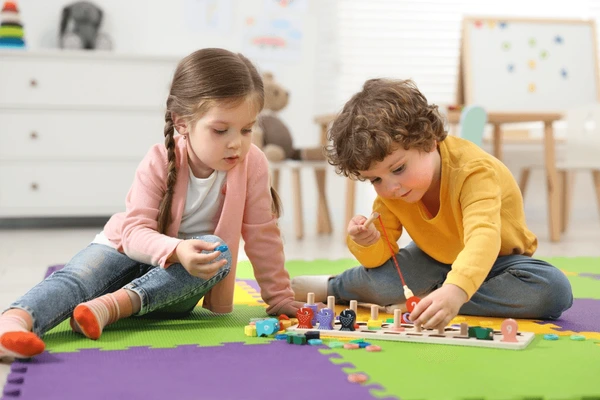
Play mats can transform into interactive learning spaces. Puzzle mats featuring letters, numbers, or animals are great tools for teaching toddlers to recognize basic shapes, colors, and sounds. Parents can use the mats to encourage playful learning sessions, such as matching games or hopscotch variations, that promote both physical and cognitive development. This type of interaction not only builds educational foundations but also strengthens the parent-child bond through cooperative play.
3.4. Safe Play Areas
For families living in homes with hard floors or smaller spaces, play mats provide a designated safe play area. The soft, padded surface acts as a barrier between your child and hard flooring, reducing the risk of bumps and bruises during active play. Whether set up in the living room, nursery, or even outdoors, play mats help contain play activities within a safe zone, giving parents peace of mind while their children explore freely.
3.5. Portable Outdoor Play
Many play mats are lightweight and foldable, making them ideal for outdoor play or family outings. Whether you’re heading to the park, beach, or simply your backyard, a play mat offers a clean, soft surface for children to sit, crawl, or play on. This portability allows parents to create an instant play area anywhere, ensuring their child has a safe, familiar space even when away from home.
4. Choosing the Right Play Mat for Your Family
With so many options available, selecting the right play mat can seem overwhelming. Here are some key factors to consider:
4.1. Age Appropriateness
Choose a mat that is designed for your child’s current developmental stage. For infants, soft, non-toxic mats are ideal. For toddlers, look for interactive or puzzle-style mats that promote learning and play.
4.2. Safety Considerations
Ensure that the mat is free from harmful chemicals such as BPA or phthalates. Mats made from eco-friendly materials are increasingly popular among parents concerned about their child’s exposure to toxins.
4.3. Durability
Children can be rough on their toys, and play mats are no exception. Look for mats made from durable materials that can withstand rough play, spills, and frequent cleaning.
4.4. Portability
If you travel frequently or like to take playtime outdoors, consider a lightweight, foldable play mat that’s easy to transport. Some mats come with carrying cases for added convenience.
4.5. Ease of Cleaning
As with any product for children, ease of cleaning is crucial. Water-resistant, wipeable mats are perfect for minimizing mess and ensuring that playtime stays hygienic.
5. Popular Play Mats on the Market
There are numerous play mats available, each with its own unique features and benefits. Here are some top picks for parents:
Skip Hop Playspot Foam Play Mat
This mat features stylish geometric foam tiles that offer a safe, cushioned play surface. Easy to clean and ideal for modern interiors, it’s perfect for both infants and toddlers.
Baby Care Play Mat
A reversible, waterproof play mat with soft cushioning, it’s designed to provide a large, safe area for playtime. The fun designs keep kids engaged while the mat is easy to maintain.
MioTetto Baby Play Mat
Crafted from eco-friendly materials, this soft, non-toxic mat ensures safety while supporting crawling and early movement. The colorful designs foster creativity and imagination.
Meiqicool Puzzle Foam Play Mat
With vibrant colors and interlocking foam tiles featuring numbers and letters, this mat promotes both fun and learning. It’s easy to assemble and perfect for educational play.
Tamiply EVA Soft Interlocking Floor Mats
These soft EVA foam mats provide a durable, easy-to-clean surface that can be assembled to fit any space. They are ideal for toddlers and can handle active play.
ieBabay Baby Play Mat
ieBabay mats feature foldable, portable designs with educational prints like letters and animals. They offer anti-slip surfaces and cushioning, making them perfect for indoor and outdoor use. Crafted from non-toxic, eco-friendly materials, they are durable and hypoallergenic.
6. Play Mats as Tools for Mindful Parenting
Play mats are not just about play; they also serve as tools for parents seeking a mindful approach to parenting. By incorporating play mats into daily routines, parents can foster a safe, nurturing environment that supports both physical and emotional development.
6.1. Building Bonds Through Play
Interactive play on a play mat provides an opportunity for parents to engage with their children in meaningful ways. This fosters bonding and can even help with emotional regulation in children.
6.2. Mindfulness and Relaxation
As children grow older, play mats can be used for relaxation activities such as yoga or stretching. Creating a calm, peaceful play area helps children unwind and reinforces positive mental health habits from a young age.
7. Play Mats and Sustainable Parenting
In recent years, sustainability has become a key consideration for many parents when purchasing products. Eco-friendly play mats are now widely available, offering a safer option for both children and the environment.
7.1. Non-Toxic Materials
Parents can opt for mats made from materials that are free from harmful chemicals, such as BPA, lead, and phthalates. These mats are safer for children, especially those who are teething and may put toys or parts of the mat in their mouth.
7.2. Eco-Friendly Manufacturing
Some brands go the extra mile by ensuring that their manufacturing processes are environmentally friendly. This includes using recycled materials and minimizing waste during production.
8. Final Thoughts: Why Every Parent Needs a Play mat
Play mats have evolved into essential parenting tools that offer a multitude of benefits for both parents and children. From promoting cognitive and motor skills to ensuring safety and fostering mindful parenting practices, play mats are a valuable addition to any household.
For parents seeking versatile, durable, and educational play solutions, investing in a high-quality play mat is an excellent choice that will support a child’s growth and well-being for years to come.

